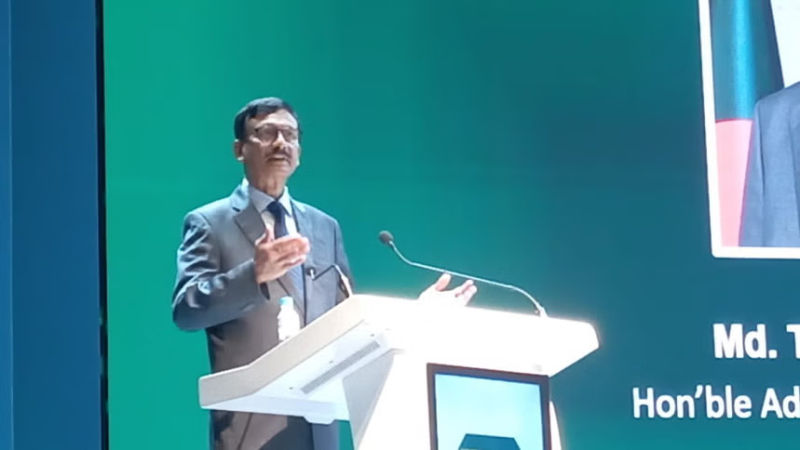- Intimidation or bloodshed cannot halt Bangladesh’s march to democracy |
- Khaleda Zia integral to an important chapter in BD history: Yunus |
- Enthusiasm marks Victory Day celebrations across Bangladesh |
- Dhaka-Delhi ties deep; to be shaped by trust, dignity, mutual respect |
- EU deploys election observation mission to Bangladesh |
Rohingya return unlikely amid Myanmar war: Foreign adviser

Foreign Affairs Adviser Md Touhid Hossain said the possibility of Rohingya repatriation remains dim due to Myanmar’s civil war, fragmented authority, and lack of security and citizenship guarantees.
“We have yet to find a workable solution to this crisis,” he said at a seminar on the strategic implications of the Rohingya issue and possible solutions.
Touhid noted that the 2017 mass exodus was the third major wave of Rohingyas fleeing Myanmar due to military crackdowns. “Even before that, around 300,000 arrived gradually. This is a long-standing problem,” he said.
He criticised Bangladesh’s earlier reliance on bilateral diplomacy, stating that such efforts were destined to fail. “The motive in 2017 was not just displacement—it was to erase the Rohingya population permanently,” he said.
Calling the bilateral process “futile,” he pointed out that not a single Rohingya has returned. “Diplomacy must continue, but it’s unrealistic to expect bilateral talks alone to bring results.”
He stressed that repatriation must be voluntary and ensured by guarantees of safety and citizenship. “They will not return to face persecution again. At least the camps offer some safety,” he added.
Touhid rejected the idea that Myanmar was ever a democracy, even under Aung San Suu Kyi. “It operated as a quasi-military regime. Now, that pretense is gone. The country is in full-scale civil war.”
He described Myanmar’s fractured power landscape, involving the military junta, the Arakan Army, and the National Unity Government (NUG), and said all must be included in any resolution effort. He emphasised the role of the Arakan Army, which now controls large parts of Rakhine.
Touhid also recalled that the NUG once extended a hand to the Rohingyas, inviting them into the pro-democracy movement. “That moment could have helped legitimise the Rohingyas as political actors. Unfortunately, it passed without real progress.”
He warned of growing risks from prolonged displacement, especially among youth in the camps. “It is naïve to expect one million people—half of them young—to remain peaceful indefinitely. This unresolved crisis could fuel radicalisation and destabilise the region.”
He called for continued international focus on the Rohingya issue, praising recent high-level visits while urging more sustained action. “Look at Bangladesh in 1971, Rwanda, or the Balkans—those conflicts ended only after major upheavals. The war in Myanmar could be such a turning point.”
Joining the discussion, a national security analyst and professor of international relations observed that the Rohingya crisis has become a key national security concern, no longer just a humanitarian issue.
He noted the camps have become vulnerable to transnational criminal networks and extremism due to the prolonged delay in repatriation.
“Bangladesh’s counter-terrorism gains could be at risk if root issues—like marginalisation and long-term displacement—are not addressed,” he said.
He stressed the need to build both physical and cognitive resilience, especially among young people susceptible to disinformation and extremist narratives.

